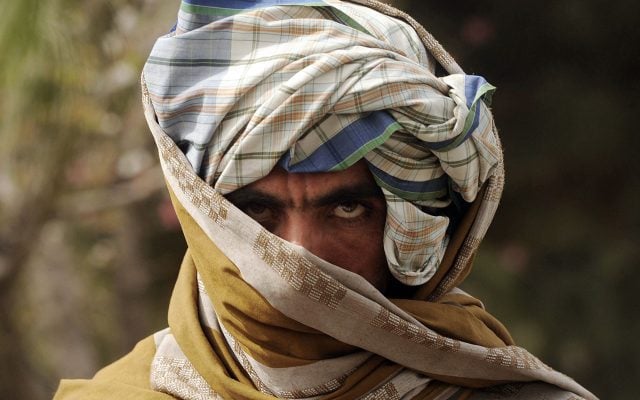By Rachel Avraham
Jews around the world have just completed the week-long celebration of Passover, and with it, the story of the Haggadah which describes the people of Israel leaving ancient pharaonic Egypt, a departure that returned the people of Israel their freedom. But both after the Israelites and before them, Egypt continued to stand firm with the pharaohs who ruled it at its head. When we look at the ancient Egyptian culture and the pharaohs, we can recognize a similarity between them and an extreme Islamist religious organization of our time. This organization is the Taliban, which is based in Afghanistan. We contend that the pharaohs of today are the Taliban (and not, for example, the Egyptians of today).
First, to our great regret and the regret of the Afghans, the Taliban maintains a very conservative and chauvinistic lifestyle, far from the social norms in the West. Under Taliban rule, women become less equal to men, not only in the social norms of the individual but in a way that is enshrined in the law of the state. Women are not allowed to drive under Taliban rule, which a few years ago might not have been unusual in other religious Islamist countries, but even Saudi Arabia has already allowed women to drive. Under Taliban rule, women are not allowed to go out to work to earn a living. In addition, they are not allowed to go out to study and acquire an education.
Having the right to study, travel and work are pivotal human rights for women, but under the rule of the Taliban, which confines women to the home, these rights are not being granted. More horrific laws were enacted by the Taliban in Afghanistan: a male doctor is forbidden to treat a woman, and women are not allowed to go to general hospitals. Women must wear the burqa, which covers the whole body and the eyes. One of the most delusional laws is that all the windows of the houses were obliged to be sealed with black paint to prevent men from seeing the women in their homes. Even within the family, the woman is worth less than the man under Taliban rule.
When a woman annoys her husband, it is permissible for him to stab her in today’s Afghanistan. That is his right in Islamic law, which the Taliban accepts as it is without refinements and adaptations for modern times. Even when feminist women tried to take to the streets and protest against the violation of the civil rights of the women living in Afghanistan, the Taliban violently dispersed them. In ancient Egypt, as in the rest of the ancient world, women were limited in what property they could own. Their job was to raise the children, take care of the food, and please the man. But beyond that, in ancient Egyptian art, women are always shown on the left and the man on the right, women are always more bent than the man, smaller than the man, and a little behind him. Placing the women on the left reflects the inferiority of women compared to men. Just as in ancient Egypt, where women were defined as inferior and not equal to men, so also under the rule of the Taliban in Afghanistan.
In ancient Egypt, Pharaoh, the king of Egypt, had the right to rule over the people because of the relationship he had with the Egyptian gods. The belief was that Pharaoh was considered the only person who could bridge the spiritual world to the material world, and this was his role from a religious point of view. To a certain extent, this is also how the Taliban behaves, or at least sees itself. When the Taliban took over Afghanistan, by force of arms of course, and without anything to do with democracy, they made Sharia the law of the land. Sharia is essentially Islamic law that has been formulated over the years since the establishment of the religion by Muhammad. Sharia guides the Muslim on how he should live his life, on the political, marital, military, and interpersonal levels.
There are laws in it that reach the small details of everyday life, such as which shoe should be put on first, right, or left (this is also true in orthodox Judaism). In addition, the Taliban made the Qur’an the basis of the education system in the country and rejected the contents of Western studies. Only an organization that considers itself to know what divine truth is (if it is divine truth then it is the only truth that exists) can force an entire country to live under divine law in the most extreme way that exists.
The Salafis are the most extreme of the extreme, for them, there is no room for a new interpretation of the holy text, the Qur’an and the Hadith (the Muslim Oral Law), only interpretations from the time of the companions of the Prophet Muhammad, 1400 years ago. This means that the Taliban forces the people of Afghanistan to live under pre-medieval laws. Anyone who dares to oppose their agenda, even if he is a devout Muslim who prays five times a day, fasts in Ramadan, does not eat pork, and generally lives a Muslim lifestyle but is unwilling to act in their extreme forms of action, will be considered an apostate. Only an organization that is sure that it is the one that should mediate the divine gospel to the world can teach its future generation exclusively religious studies. But it is the Taliban, an extremist Salafi Jihadi organization, which believes in the only truth that exists and for anyone who does not follow this belief will face his death. Such conduct proves that the Taliban is sure that they are the one who mediates with the people for Allah.
The end of the Kingdom of Egypt is pretty much the same as the end of the first Taliban rule in Afghanistan, and that’s probably how the end of the second period of rule (which is currently in progress) will look as well. The ones who eventually managed to end the reign of the pharaohs in Egypt were the religious priests. They managed to gain political power stronger than the king, from the pharaoh (slightly reminiscent of the Taliban’s takeover of Afghanistan). Nevertheless, the Egyptian kingdom continued to exist, but in a different way than it had been conducted until then. In the end, the one who managed to wipe out the Egyptian kingdom completely was the powerful world power of that time, which began to control large areas of the world – the Roman Empire. The Taliban fell for the first time after the Americans put a military force into Afghanistan, which eventually captured the territory and succeeded in freeing it from the Taliban’s hold. When the Americans left Afghanistan, the pharaohs of today decided to raise their heads again and take control of Afghanistan by force of arms, which the pharaohs were not allowed to do. This is the difference between the pharaohs of that time and the pharaohs of today.
 Rachel Avraham is a political analyst working for the Safadi Center for International Diplomacy, Research, Public Relations and Human Rights, which is run by Mendi Safadi, a former Likud Candidate for the Knesset and a former chief of staff of former Israeli Communication Minister Ayoob Kara. Since 2012, she has been working as an Israel-based journalist and writer, covering Iran, Kurdistan, Turkey, Iraq, Syria, the Israeli-Palestinian conflict, and other developments in the greater Islamic world.
Rachel Avraham is a political analyst working for the Safadi Center for International Diplomacy, Research, Public Relations and Human Rights, which is run by Mendi Safadi, a former Likud Candidate for the Knesset and a former chief of staff of former Israeli Communication Minister Ayoob Kara. Since 2012, she has been working as an Israel-based journalist and writer, covering Iran, Kurdistan, Turkey, Iraq, Syria, the Israeli-Palestinian conflict, and other developments in the greater Islamic world.
Her articles have appeared in the Washington Times, the Hill, Front Page Magazine, the Daily Wire, the Christian Post, the Baltimore Jewish Times, the Jerusalem Post, Israel Hayom, Ahval and many other publications across the globe. She received her MA in Middle Eastern Studies from Ben-Gurion University. She got her BA in Government and Politics with minors in Jewish Studies and Middle Eastern Studies from the University of Maryland at College Park.





